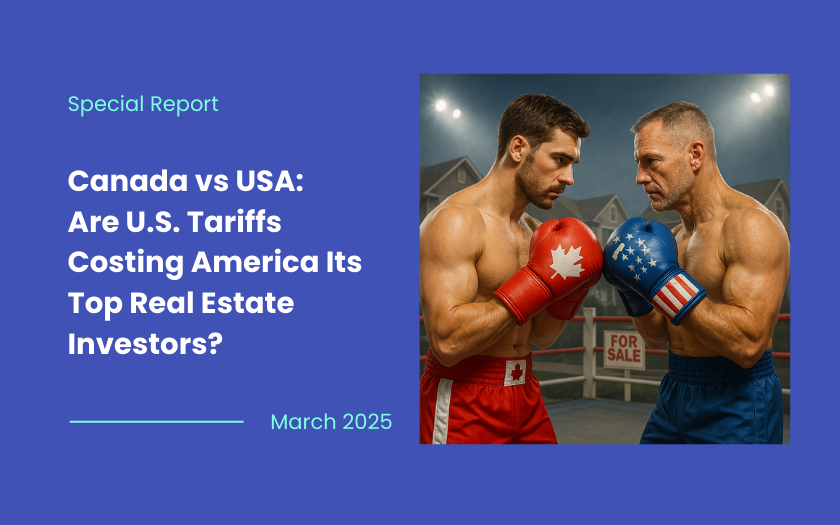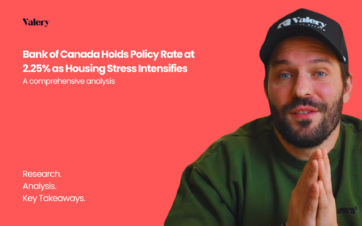Table of Contents
Executive Summary
In recent years, Canadians have dominated foreign investment in the U.S. residential real estate market. According to the latest report by the National Association of Realtors (NAR, 2024), Canadian buyers accounted for approximately 13 per cent of all foreign home purchases between April 2023 and March 2024, investing around $5.9 billion USD. Canadian investor interest has largely been driven by comparatively affordable property prices, attractive rental returns, and lifestyle advantages in popular U.S. markets such as Florida, Arizona, and Hawaii. However, recent shifts in U.S. trade policies—particularly increased tariffs on essential building materials such as Canadian softwood lumber (approaching 40 per cent), steel (25 per cent), and aluminum (10 per cent)—have introduced significant uncertainty.
These tariffs are altering investment dynamics for Canadians. The ongoing Trump trade war has intensified the debate over USA vs Canada, particularly for those considering a second home or aiming to benefit from buying property in the USA.
Two recent sentiment polls carried out by Valery illustrate this evolving landscape clearly. The first poll highlighted a strong preference for U.S. real estate, with 72 per cent of respondents favoring U.S. markets over Canadian ones. Despite this, our second poll found a majority (51 per cent) now expressing decreased interest in U.S. real estate investment specifically due to trade policies and tariff impacts. Together, these findings suggest that while the U.S. market remains attractive overall, escalating trade tensions are increasingly shaping Canadian investor decisions.
Background: Canadian Real Estate Investment Trends
Historically, Canadians have consistently been the largest international buyers of U.S. residential real estate. According to the NAR’s 2024 International Transactions Report, Canadian investors purchased U.S. residential properties worth approximately $5.9 billion USD between April 2023 and March 2024, even as overall foreign investment in U.S. real estate reached its lowest level in 15 years due to high interest rates and currency fluctuations.
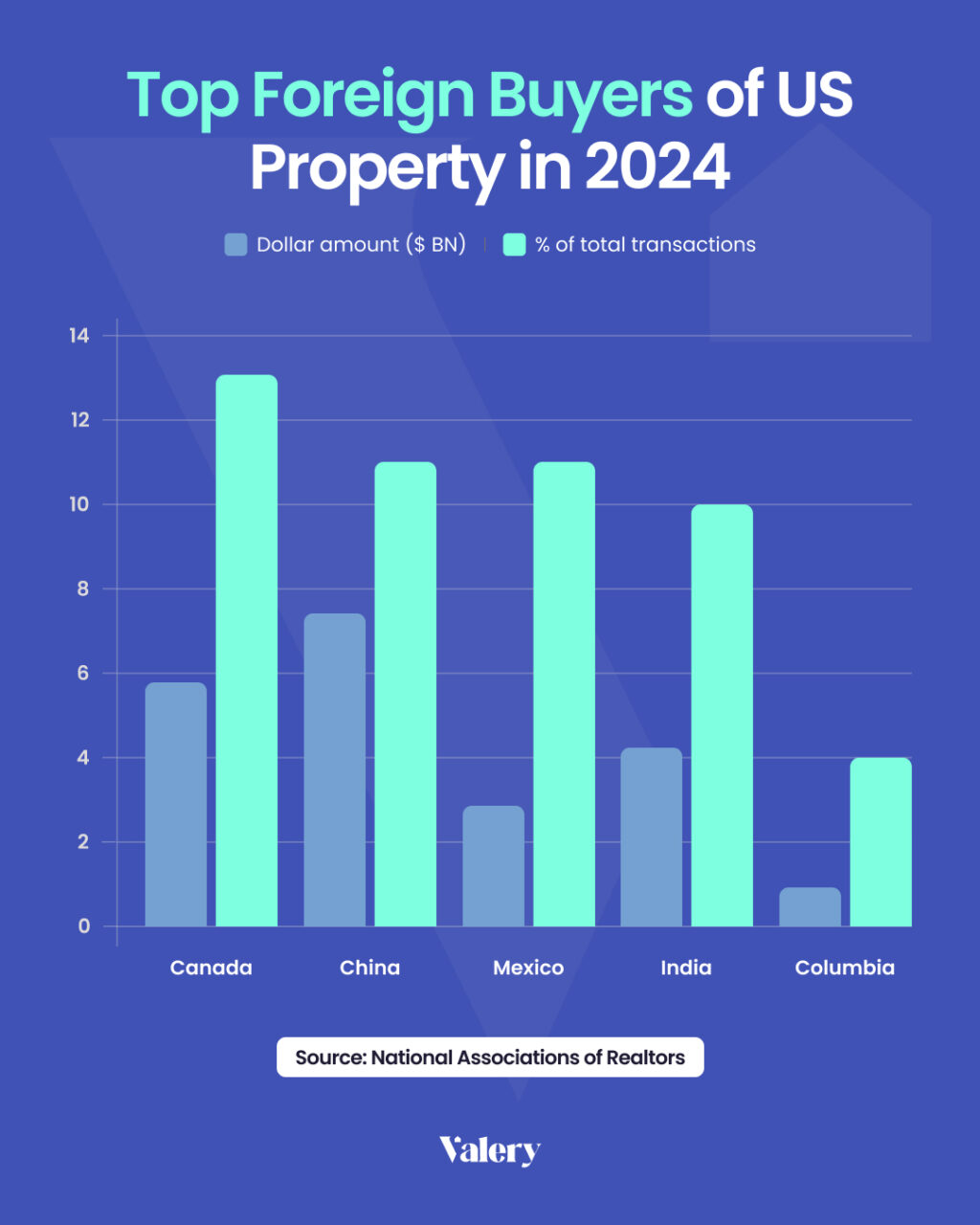
The typical Canadian investment approach has focused heavily on single-family detached homes, accounting for about 69 per cent of all Canadian residential property purchases in the U.S. during the last year. Buying real estate in the U.S. as a Canadian often involves seeking properties suitable for both vacation use and income generation via seasonal rentals. The USA vs Canada debate often influences foreign buyers looking for reliable real estate markets.
Florida remains the primary destination for Canadian buyers, attracting 41 per cent of Canadian purchases. Arizona follows closely at 23 per cent, with Hawaii and California also prominent choices. These locations appeal to Canadian buyers due to their attractive climates, established expatriate communities, and comparatively affordable real estate prices. According to latest figures from CREA and Realtor.com, the median home price in Orlando, Florida, stands at around $390,000 USD, notably lower than Toronto’s median of approximately $857,000 USD. This price differential has been a consistent driver of Canadian investor activity in the U.S..
Current Canadian Investor Preferences
In a recent sentiment poll conducted by Valery, a compelling 72 per cent of Canadian respondents indicated a clear preference for investing in U.S. real estate rather than in Canada. This overwhelming preference remains rooted in several key advantages of the U.S. market.
Median property prices in favored U.S. markets such as Orlando, Tucson, and Palm Springs remain significantly lower compared to Canada’s major metropolitan areas like Toronto, Vancouver, or even Calgary. Canadian buyers can often find better deals in U.S. markets, allowing them to purchase properties at nearly half the price found in major Canadian urban centers.
Further reinforcing the appeal of U.S. markets are strong rental yields and robust short-term rental demand in popular tourist regions. Markets like Orlando and Scottsdale offer lucrative opportunities for Canadian investors who seek both personal use and rental income. Lifestyle remains another compelling factor: Canadian buyers are naturally attracted to warmer climates, seasonal recreational opportunities, and established communities of fellow Canadian investors already residing part-time in these regions.
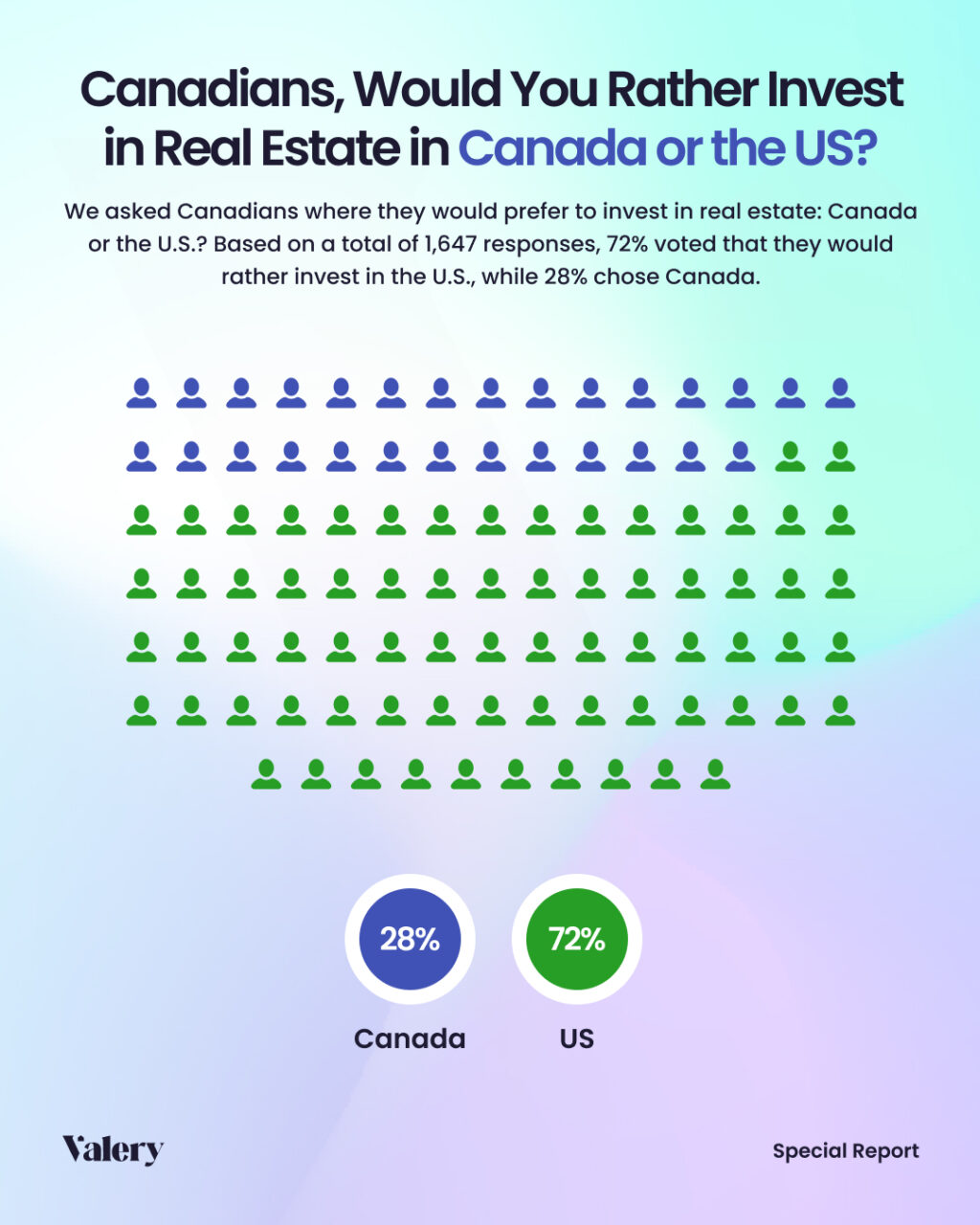
U.S. Foreign Real Estate Investment Environment & Trade Policy Changes
The U.S. has traditionally provided a highly accessible and stable investment environment for foreign real estate buyers, characterized by relatively few ownership restrictions. However, recent changes in trade policy have significantly altered the investment landscape, particularly affecting Canadian investors.
Key developments include substantial increases in tariffs, notably those imposed on Canadian softwood lumber, now approaching 40 per cent, as well as renewed tariffs on imported steel (25 per cent) and aluminum (10 per cent). According to the National Association of Home Builders (NAHB, 2025), these tariffs alone have increased the cost of constructing an average U.S. single-family home by roughly $9,200 USD. Rising construction costs are increasingly impacting foreign buyers from Canada.
Additionally, tariffs have introduced volatility into currency markets, weakening the Canadian dollar relative to the U.S. dollar and effectively increasing purchase costs for Canadian investors. This combination of economic pressures is influencing the ongoing debate of USA vs Canada for investment opportunities.
Impact of U.S. Tariffs on Canadian Investors’ U.S. Real Estate Interest
Reflecting these growing economic concerns, a second poll conducted by Valery revealed that a majority of Canadians—51 per cent—now report reduced interest in U.S. real estate due specifically to the recent escalation in tariffs and trade tensions. Historically, Canadian investor sentiment has cooled during periods of trade disputes. The current sentiment mirrors past instances of diminished enthusiasm resulting from geopolitical tensions, reflecting a cautious “wait-and-see” approach among many investors. While approximately half remain relatively unaffected or optimistic, a slight majority are clearly reassessing risks, potentially signaling a future shift of investment back toward Canadian markets or into less politically sensitive international opportunities.
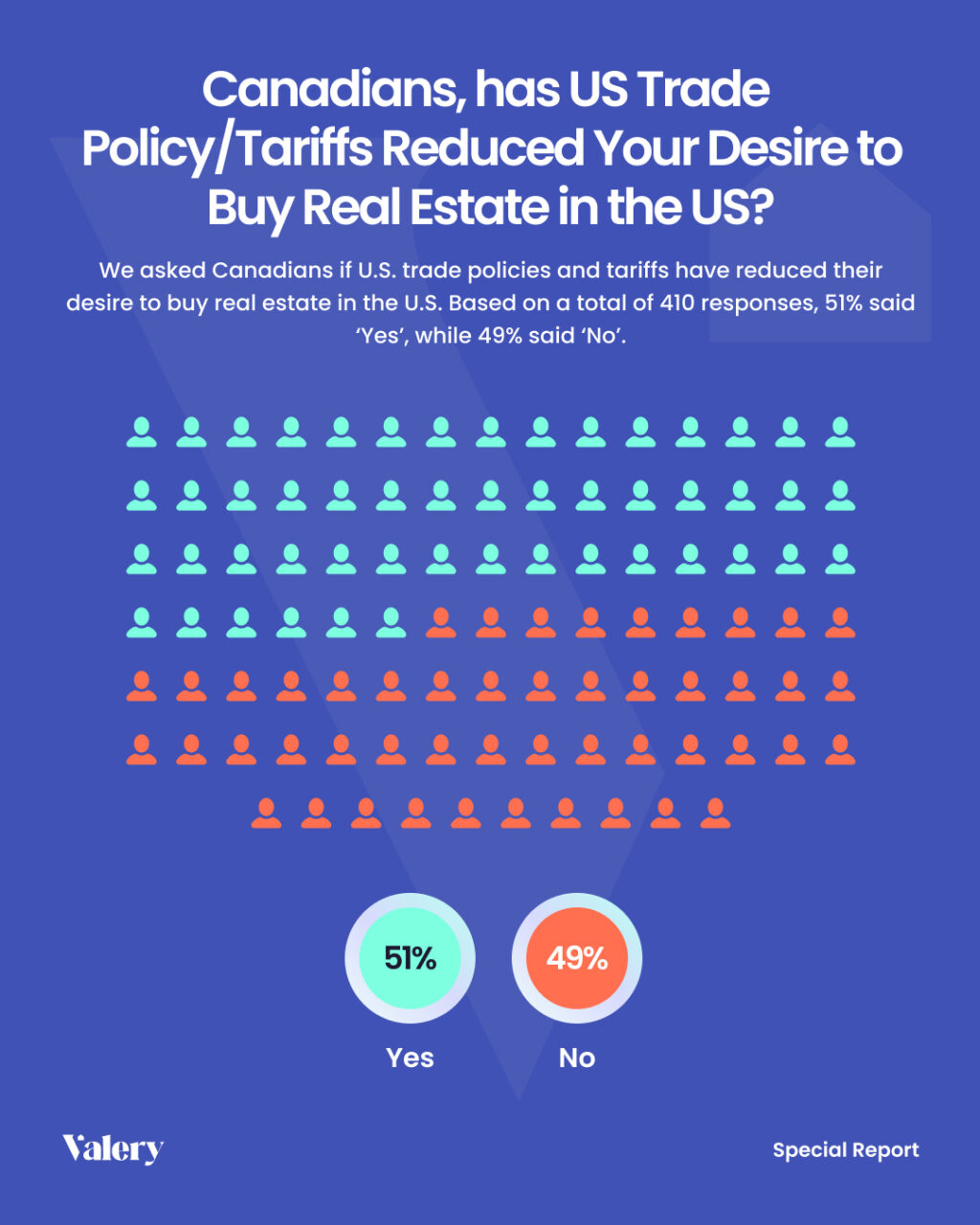
Implications for the Canadian Domestic Real Estate Market
With Canadian investor sentiment toward the U.S. now moderated by trade uncertainties, there is significant potential for capital previously earmarked for U.S. real estate to flow back into domestic Canadian markets. This could notably benefit Canada’s recreational and resort property sectors, as investors seek local alternatives to traditional U.S. vacation destinations.
Markets such as Ontario’s Muskoka, British Columbia’s Okanagan Valley, and Atlantic Canada’s coastal communities could see increased investment interest as Canadian buyers reassess their cross-border options. Further, the Bank of Canada’s forecasted moderation of interest rates by late 2025 may enhance domestic affordability and stimulate additional demand in Canada’s real estate market, providing developers and brokers opportunities to strategically attract these investors.
Alternative Investment Strategies for Canadian Investors
Given the complexities introduced by recent U.S. trade policies, Canadian investors may prudently consider alternative real estate strategies. Domestically, strong investment opportunities exist in Canada’s high-demand rental and recreational property markets, offering stability and insulation from geopolitical risks.
Internationally, investors might explore stable and welcoming markets such as Spain, Portugal, or Costa Rica, which offer attractive climates, robust tourism, favorable investment climates, and political stability. Indirect investment strategies, such as Real Estate Investment Trusts (REITs) and mutual funds with global property exposure, also provide viable alternatives to direct property ownership, reducing risk exposure.
Conclusion and Strategic Recommendations
The ongoing USA vs Canada debate highlights a changing investment landscape. While U.S. real estate continues to hold considerable appeal, recent tariff-related developments demand increased vigilance. Investors are advised to monitor trade negotiations closely, engage professional advisory services for cross-border transactions, strategically manage currency risks, and explore alternative investment avenues domestically and internationally.
By proactively adapting to this shifting environment, Canadian investors can effectively safeguard their portfolios, mitigate emerging geopolitical risks, and remain well-positioned to capitalize on future real estate opportunities.
This Valery Special Report reflects extensive analysis and insights derived from recent market research, polling, and industry data sources, including the National Association of Realtors (NAR), Canadian Real Estate Association (CREA), and Canadian Mortgage and Housing Corporation (CMHC).
